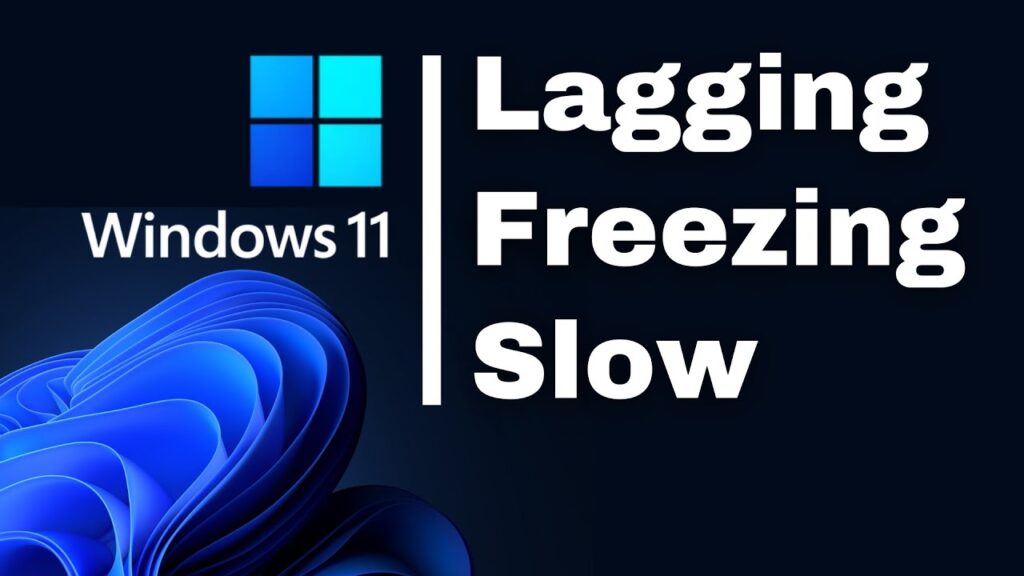Are you having trouble with VoxPlayer Slow on Windows 11 computer? A slow VoxPlayer can be frustrating, especially if you rely on it for your audio needs. Whether it’s music, podcasts, or other audio content, performance issues can disrupt your experience. This article will explore common reasons why VoxPlayer might be slow on Windows 11 and provide easy-to-follow solutions to help you get it running smoothly again.
Windows 11, with its modern features and interface, is designed to handle a variety of applications efficiently. However, sometimes software like VoxPlayer may experience performance issues. By understanding the potential causes and implementing some simple fixes, you can improve the performance of VoxPlayer and enjoy your audio content without interruptions.
Why is VoxPlayer Slow on Windows 11?
- System Resource Limitations
One of the primary reasons VoxPlayer might be slow is due to limited system resources. VoxPlayer, like any other software, requires a certain amount of RAM (memory) and CPU (processor power) to function smoothly. If your computer is running multiple applications or if it has limited resources, VoxPlayer might struggle to perform efficiently.
- Outdated Software
Another common cause of slow performance is outdated software. If VoxPlayer or Windows 11 itself has not been updated to the latest version, it can lead to compatibility issues and performance problems. Software updates often include bug fixes, performance improvements, and new features that can help improve the overall experience.
- Conflicts with Other Programs
Sometimes, other programs running in the background can interfere with VoxPlayer. Applications that use a lot of system resources or have conflicts with VoxPlayer Slow on Windows 11can cause it to slow down. This includes security software, system optimizers, or even other media players.
- Corrupted or Missing Files
Corrupted or missing files related to VoxPlayer can also lead to slow performance. If VoxPlayer Slow on Windows 11 installation files or its configuration files are damaged, it can affect how the application runs. This might be caused by incomplete installations, accidental deletions, or other issues.
- Hard Drive Issues
The condition of your hard drive can impact VoxPlayer’s performance. If your hard drive is almost full or if it has errors, it can slow down the application. VoxPlayer Slow on Windows 11 both need sufficient storage space and a healthy hard drive to run effectively.
- High Audio File Quality
If you are playing high-quality audio files, such as FLAC or high-bitrate MP3s, VoxPlayer may require more processing power. High-quality files are larger and require more resources to process, which can affect performance, especially if your computer is not equipped to handle them.
- System Overheating
Overheating can also cause slow performance. If your computer’s CPU or GPU is getting too hot, it may throttle its performance to prevent damage. This can lead to slower speeds in all applications, including VoxPlayer. Dust buildup, poor ventilation, or malfunctioning cooling systems can contribute to overheating.
How to Fix a Slow VoxPlayer on Windows 11
- Check System Resources
To ensure that your system has enough resources for VoxPlayer, close any unnecessary applications running in the background. You can check your system’s performance using Task Manager. Press Ctrl + Shift + Esc to open Task Manager, and see if your CPU or RAM usage is high. If it is, consider closing some applications or upgrading your hardware.
- Update VoxPlayer and Windows 11
Keeping your software up to date is crucial for maintaining good performance. Check for updates for VoxPlayer by opening the application and navigating to its settings or help menu. For Windows 11, go to Settings > Update & Security > Windows Update and click “Check for updates.” Install any available updates to ensure you have the latest improvements and bug fixes.
- Manage Background Programs
Identify and manage programs that might be affecting VoxPlayer’s performance. Open Task Manager and look for programs that are using a lot of system resources. You can end tasks for programs that are not essential by right-clicking them and selecting “End Task.” Also, ensure that your antivirus or security software is not overly aggressive or scanning files excessively while you are using VoxPlayer Slow on Windows 11.
- Reinstall VoxPlayer
If VoxPlayer’s files are corrupted, reinstalling the application can often resolve the issue. To do this, first uninstall VoxPlayer Slow on Windows 11 by going to Settings > Apps > Apps & features, selecting VoxPlayer, and clicking “Uninstall.” After that, download the latest version from the official website and install it. This will ensure that you have fresh, uncorrupted files.
- Free Up Hard Drive Space
To improve performance, make sure your hard drive has enough free space. You can use the built-in Disk Cleanup tool in Windows 11 to remove temporary files and other unnecessary data. To do this, type “Disk Cleanup” in the search bar, select the tool, choose the drive you want to clean, and follow the prompts to remove unnecessary files.
- Check for Hard Drive Errors
Run a check on your hard drive to look for errors that might be affecting performance. Open Command Prompt as an administrator by typing “CMD” in the search bar, right-clicking Command Prompt, and selecting “Run as administrator.” Type the command chkdsk /f and press Enter. Follow the instructions to check and fix any errors on your hard drive.
- Manage Audio File Quality
If high-quality audio files are causing slowdowns, consider converting them to a lower quality or using a different format that is less demanding on your system. VoxPlayer Slow on Windows 11 should handle most common formats efficiently, so switching to a less resource-intensive format can help.
- Improve System Cooling
If overheating is an issue, ensure your computer’s cooling system is functioning properly. Clean out dust from vents and fans, and make sure your computer is in a well-ventilated area. You might also consider using a cooling pad or external fan to help manage temperatures better.
- Optimize Startup Programs
Programs that start automatically with Windows can impact performance. Open Task Manager and go to the “Startup” tab. Disable any programs that you do not need to start with Windows. This can free up resources for VoxPlayer and other applications.
- Adjust VoxPlayer Settings
Explore VoxPlayer’s settings to see if there are any performance-related options that can be adjusted. Sometimes, changing settings related to buffering, quality, or output can improve performance. Check the help documentation or support forums for specific advice on optimizing VoxPlayer Slow on Windows 11 settings.

Conclusion
A VoxPlayer Slow on Windows 11 can be frustrating, but with the right troubleshooting steps, you can resolve the issue and get back to enjoying your audio content. By checking system resources, updating software, managing background programs, and ensuring your hard drive is in good shape, you can significantly improve performance. Additionally, addressing overheating issues and adjusting settings can help VoxPlayer run smoothly. If these steps don’t resolve the problem, consider seeking further assistance from VoxPlayer’s support team or exploring hardware upgrades to better meet your system’s needs.
Taking the time to understand and address the various factors that contribute to slow performance can make a big difference. Whether it’s through updating software, optimizing system settings, or maintaining your hardware, these solutions can help ensure a smoother and more enjoyable experience with VoxPlayer on your Windows 11 computer.
FAQs about Fixing a VoxPlayer Slow on Windows 11
Q: Why is VoxPlayer running slow on my Windows 11 computer?
A: VoxPlayer might be slow due to limited system resources, outdated software, conflicts with other programs, corrupted files, or hard drive issues. High-quality audio files and overheating can also impact performance.
Q: How can I update VoxPlayer Slow on Windows 11to fix performance issues?
A: Open VoxPlayer Slow on Windows 11, go to the settings or help menu, and check for updates. Install any available updates to ensure you have the latest performance improvements and bug fixes.
Q: What should I do if VoxPlayer Slow on Windows 11still runs slow after updating?
A: If VoxPlayer Slow on Windows 11remains slow, try reinstalling the application, freeing up hard drive space, checking for hard drive errors, and managing background programs. You may also want to optimize your system’s cooling.
Q: How can I free up hard drive space on Windows 11?
A: Use the Disk Cleanup tool by typing “Disk Cleanup” in the search bar, selecting the tool, choosing the drive you want to clean, and following the prompts to remove temporary and unnecessary files.
Q: What can I do if my computer is overheating and affecting VoxPlayer?
A: To prevent overheating, clean dust from vents and fans, ensure your computer is in a well-ventilated area, and consider using a cooling pad or external fan to help manage temperatures.

